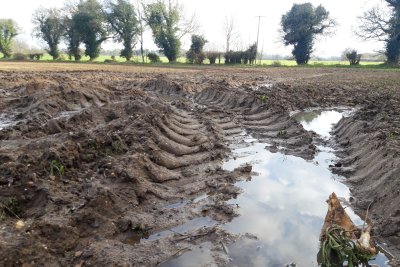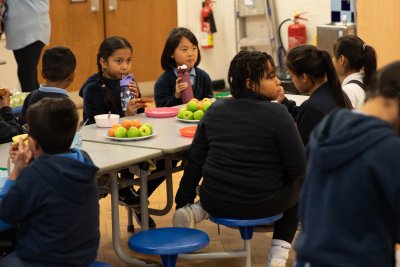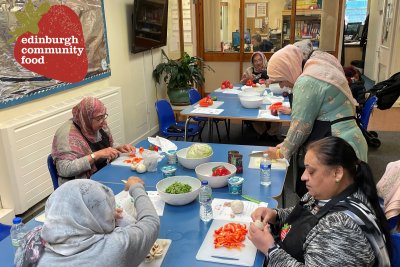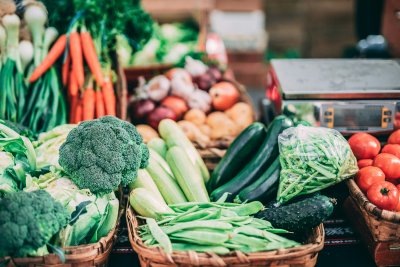Language matters, especially when it comes to achieving food justice
There are a lot of terms to describe the nuances of food and poverty but whilst some can drive progress, others can hinder it. In this blog, Clare Pettinger (Food Power peer mentor in the South West) and Cecily Spelling (Food Power Communications Coordinator) summarise a recent Food Power discussion on why language is such a powerful tool in the campaign to end food poverty and how we can best use it to drive positive change
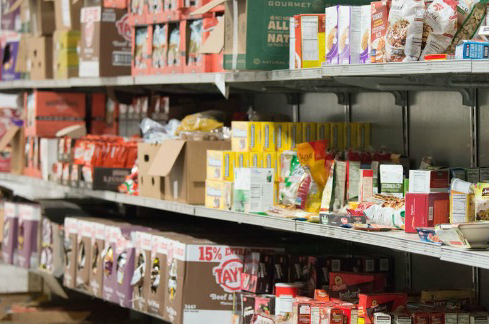
“Language has tremendous power. It does more than just communicate information. It engages us in many ways, leading to a multitude of conscious and unconscious responses” Food Ethics Council
Food poverty, food insecurity, food vulnerability, household food insecurity, food justice and hunger. These are just some of the terms used by organisations, businesses and individuals when talking about people being unable to afford, access or prepare a healthy meal. All these terms have their uses but can we use them to reframe the narrative to drive positive change? This was the fascinating question posed at the latest South West Food Power regional learning network which resulted in some equally fascinating discussion.
Clare Pettinger, the Food Power peer mentor for South West England, hosted the meeting and kicked off with this question to the group: 'Name five ‘negative’ words you have heard that describe food poverty.' We’re sure readers have a few that spring to mind, but here’s what was shared on the day:
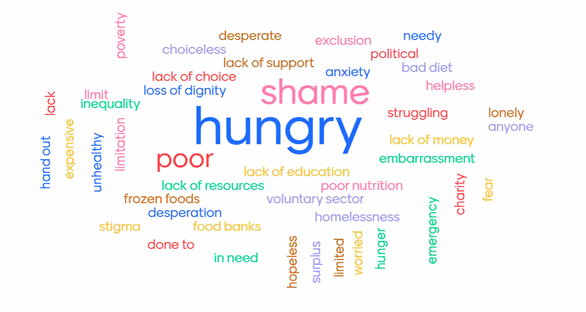
The summary of words is not light reading. In just one glimpse it offers a stark insight into the challenges, assumptions and desperation that many living in food poverty face. These words reflect the short-term solutions to food poverty that so many have come to think of as the norm, as well as the stigma than many accessing that support feel. These go hand in hand with the damaging narrative that blames those living in food poverty for their circumstances, rather than the failed system that has led them to this point.
With increasing awareness of food poverty in the UK due to the pandemic and many organisations beginning to refer to poverty in the broader sense, the group reflected on the current language and narrative and whether there was merit in uniting behind one agreed term. Unsurprisingly, opinions varied so here is where we got to.
Hunger
Some organisations felt that we need to go back to basics and use the word hunger because that is what people living in food poverty are - hungry. This term makes it more relatable to the public, but others felt it risked oversimplifying the issue. This is because it does not reflect the wider issue of poverty and can lead to a focus on more short-term solutions, like food banks, when what we need is to address the root causes.
Verdict: Too simple
Food poverty
This is the most common term, encompassing both a lack of food and the wider context of poverty. Though some felt it was a smokescreen that moved away from people’s experience of hunger and does not account for the temporary nature of food poverty, in most cases at least. The challenge though is that this term is best understood by the public and policy makers so if we’re to move away from this we need to bring them with us. One suggestion was to use this term for public engagement and use another all-encompassing term for policy work.
Verdict: Well understand but problematic long-term
Household food insecurity
A lesser-known phrase in the public realm but increasingly popular amongst charities, academics and public sector organisations. The group agreed that this was the best term for capturing the fact that people fall into poverty because of a small change to their circumstances. This can tip people over the edge into food poverty at any point, as evidenced by the many individuals and families seeking food support for the first time ever as a result of the Covid-19 pandemic. This could therefore be a good alternative to food poverty in a policy context.
Verdict: A good option, perhaps best for a policy context
Food access
It was felt that this had a number of different meanings ranging from money to access food or access to food in a geographical area e.g. food deserts which made it less suitable for public communications at the very least. It was also thought to compound the misleading belief of many that an individual is unable to access food due to their own circumstances rather than the system failing to provide it or support them effectively.
Verdict: Avoid due to multiple meanings and unhelpful framing
Food justice
This was the most popular choice amongst the group because, though it had multiple meanings, they all led to the same end point – good food for all. It offers a more positive, empowering narrative through focusing on justice which implies a failure of the system rather than the individual. It was also pointed out that the entire food system is impoverished, so to build a resilient food system fit for the future, food justice must be secured across the whole system. Recognising this, some organisations have already pivoted towards this language in their communications.
Verdict: The preferred option
Poverty
Finally and perhaps the simplest of them all - poverty. Anyone living in food poverty is living in poverty and this needs to be a key part of the narrative or we risk short-term sticking plasters, such as food banks and surplus food redistribution, becoming a long-term problem.
Verdict: Use wherever possible.
In addition to discussion on specific terms, a key take-home from this session was that all language should be developed with the input of people with lived experience of household food insecurity. This will help reach the communities that organisations are working to support, create a more empowering narrative for both public and policy engagement and relay the key issues more effectively.
In that spirit, to finish on a positive note the meeting closed with another task - to name five positive words the group associated with food poverty. This is what was shared:
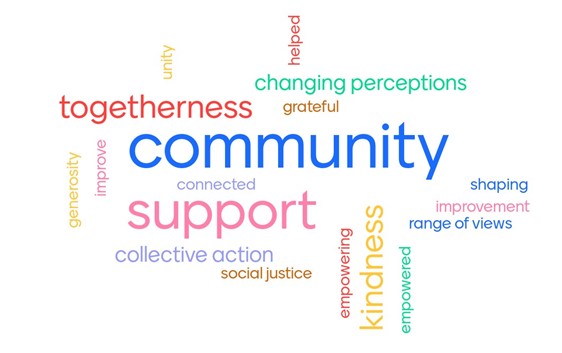
In contrast to the negative words we started with, these offer a more hopeful vision of community that can be empowered to end food poverty and poverty overall. Language will be key in achieving that and that is what this conversation set out to explore. In doing so, the group have helped lay a path for more positive, solutions focused framing that can empower people to eliminate food poverty and push for food justice across the whole food system.
Feel free to share your own thoughts about language by emailing cecily@sustainweb.org and do have a read of some of the expert opinions and research on this topic below:
- Megan Blake, Senior Lecturer at the University of Sheffield and creator of the Food Ladders concept.
- The Frameworks Institute – Reframing Hunger in America
Published Tuesday 12 January 2021
Food Power: Food Power is an exciting new programme working with local communities across the UK to strengthen their ability to reduce food poverty.
